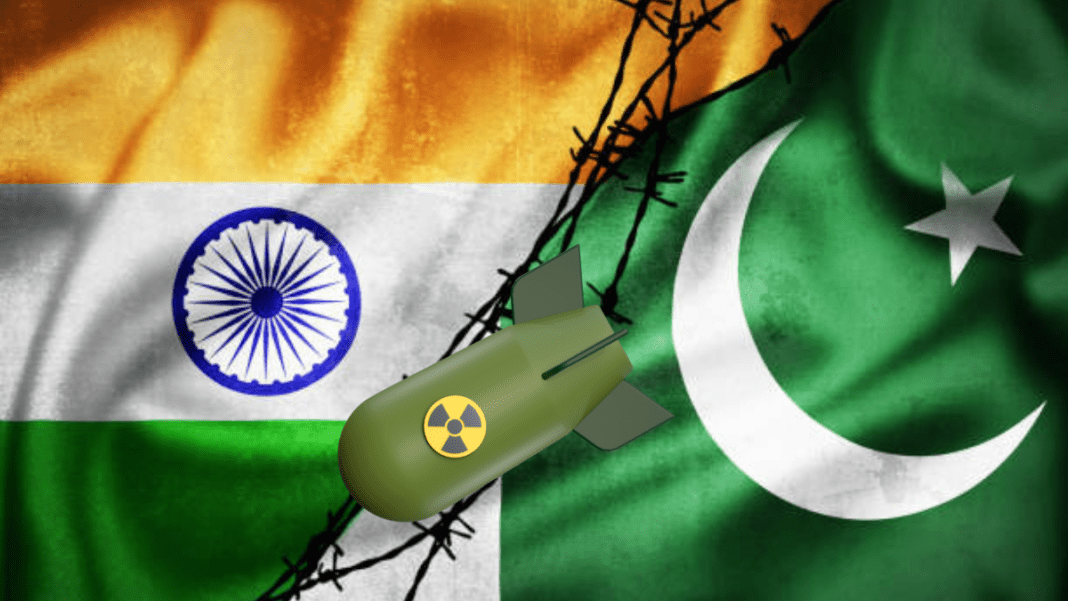Former Major General GD Bakshi strongly condemned the recent nuclear threats made by Pakistani Army Chief Asim Munir. Munir had made these alarming remarks during his official visit to the United States, warning that Pakistan would “take half the world down” if faced with a serious threat from India. Bakshi called these statements reckless and dangerous, emphasizing that such threats endanger not only regional but also global security.
Ex-General’s Fiery Rebuttal to Pakistani Army Chief’s Nuclear Threats
Munir’s comments came in a private dinner setting in the US, where he highlighted Pakistan’s nuclear capability. “We are a nuclear nation. If we believe we are going down, we will take half the world down with us,” Munir declared. This statement has caused shock and alarm among Indian officials and security experts, who see it as an escalation in aggressive rhetoric.
Bakshi dismissed Munir’s threats as the words of a “mad” leader and questioned his judgment. “Mulla Asim Munir goes to the USA for the second time in a month. It has gone to his head,” Bakshi said. “From US soil, he has threatened to nuke India and destroy half the world in the bargain. He also threatened to fire 10 missiles on any dam that India builds on the Indus River.”
India and Pakistan Share Nuclear Secrets in Annual Tradition!
India’s Defense Systems: A Proven Shield Against Nuclear Threats
With his vast military background, Bakshi reminded everyone of India’s defense systems’ demonstrated resilience. He pointed to recent events during Operation Sindoor, when Pakistan launched multiple missile and drone attacks against India. According to Bakshi, India’s integrated missile defense system successfully intercepted and destroyed all three ballistic missiles that Pakistan fired at India during that operation. This means the missiles missed their targets and were completely neutralized.
In addition to missile threats, Pakistan used over 1,000 drones in attacks, but India’s air defenses shot down more than 90% of these. Bakshi emphasized the efficiency of India’s defense systems in handling such threats, saying, “In the 3rd nuclear age, the sheer efficiency of integrated air defense systems can nullify the moderate nuclear arsenal of petty states like Pakistan.”
Indian Army shares 1971 report on $2 billion U.S. arms to Pakistan amid oil trade row
He also warned that India has offensive options ready, implying that any threat from Pakistan will not go unanswered. Bakshi clearly conveyed that India’s military prepares for and effectively defends itself against missile or nuclear threats.
Rising Tensions Amid Kashmir Dispute and Strong Reactions from India
The remarks by Munir come at a time when tensions between India and Pakistan remain high, especially over the Kashmir issue. Munir once more referred to Kashmir as Pakistan’s “jugular vein” while in the United States, reiterating the term’s significance to Pakistan’s national interests. This expression has previously been used to emphasize Pakistan’s adamant claims to the disputed area.
According to Indian government officials, Munir’s nuclear threat was risky and “extremely irresponsible.” The words were characterized by officials as a direct threat to international security as well as regional peace. India’s government strongly criticized Pakistan for continuously using nuclear threats to push its foreign policy goals, saying it only increases instability in the region.
India’s AI-powered decoy outsmarts Pakistan’s missiles in daring four-day air war
One official told India Today, “This is for the world to see how Pakistan is not only risking regional security but also global security.” The comments from Indian authorities highlight their concern over how Pakistan’s rhetoric could lead to further escalations in an already volatile region.
This exchange of harsh words between the former Indian general and the Pakistani army chief reflects the serious and dangerous nature of ongoing tensions between these nuclear-armed neighbors. The statements and responses underline the importance of strong defense preparedness and cautious diplomacy in a region where the consequences of conflict could be severe.

